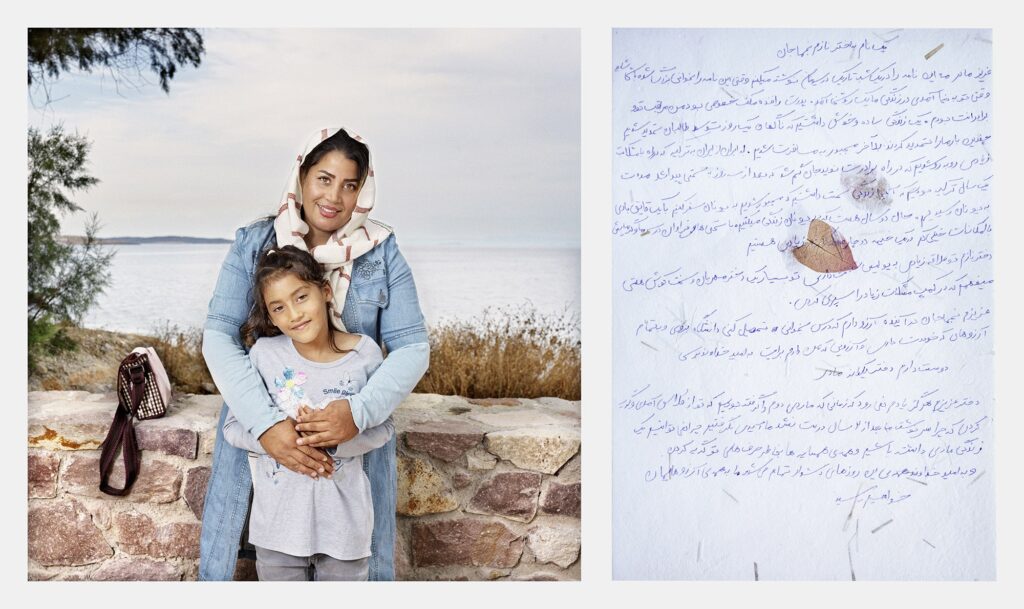Marieke van der Velden & Philip Brink

Children of the Labyrinth
Video, 2023
Marieke van der Velden and Philip Brink are an Amsterdam based Dutch filmmaking couple.They create documentary and multimedia projects. The aim is to show contemporary news in the personal perspective of the people it affects, by creating settings in which people can tell their own story, rather than the artists telling their stories.
“Mozhda, I still cannot let go of our days in Afghanistan, where we had a real home that your father and I built together with our own hands.”
Five years ago, English teacher Latifa and her family fled their home in Afghanistan after it was attacked and destroyed by the Taliban. At the time of writing, they have been staying – after a tough time in Iran and Turkey – for more than three years in Camp Moria on Greece’s Lesbos, where they received four rejections.
In her letter, Latifa describes the special day eight years ago when her daughter was born “as white as snow and as soft as cotton. Emotionally, she recounts their flight, the harsh conditions in which she has to raise her daughter and how powerless she feels in the process: “My dear girl, this is not the life you deserve.”
Children of the Labyrinth
For the first time in history, more than 100 million people are displaced worldwide, including millions of parents with their children. In ‘Children of the Labyrinth’, nine of these parents have written intimate letters to their child. All stranded in Greece, they recount their arduous journey and the helplessness they feel to be caught up in the European asylum policy, what they wish for their kid in the future, but most of all, how incredibly much they love them.
The project is created in close collaboration with the parents. Driven by every parent’s most universal desire – that of a secure future and home for your child – they had no other option but to expose their vulnerable little ones to a life-threatening labyrinth of steel walls, violent ‘pushbacks’, human traffickers and ice cold or scorching hot tent camps. The letters offer a deep human insight into what that really feels like for a parent: “It has left deep scratches on our soul.”
Since 2014, around three million people on the run (out of 100 million) have tried to reach the European Union illegally. So far, EU member states have still failed to reach a unified asylum policy. Meanwhile, border patrols on Europe’s southern and eastern borders are using increasingly brutal tools to stop people, with the knowledge of that same EU.
Steel walls, barbed wire, cameras, sensors, sound cannons with the sound of a fighter jet, violent thugs and thousands of ‘pushbacks’ have created a life-threatening labyrinth. More than 27.000 people are missing on the Mediterranean sea. But people keep coming, and a large number of them are parents with their children. Who are these parents?
What drove them to make this hellish journey? And why are they taking such dangerous routes when there are also just planes flying between all the countries? Logical questions, but with a complicated answer because people on the run in fact find themselves in a parallel world with different regulations: like a labyrinth with untraceable doors. By asking these questions, the artists start a dialogue with the parents, in order to give the children some answers someday.